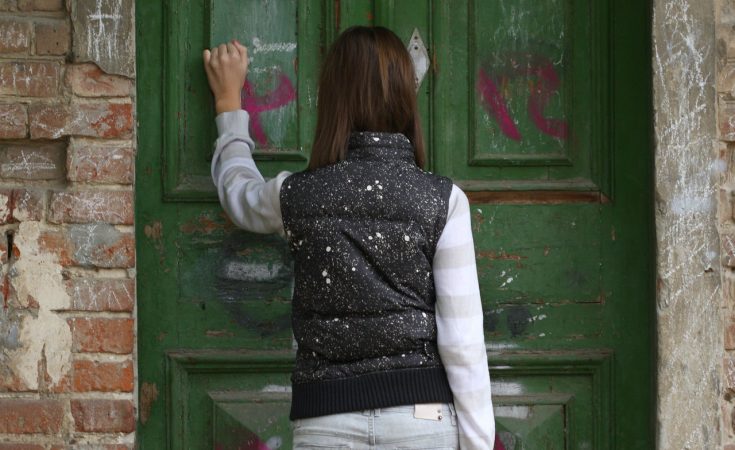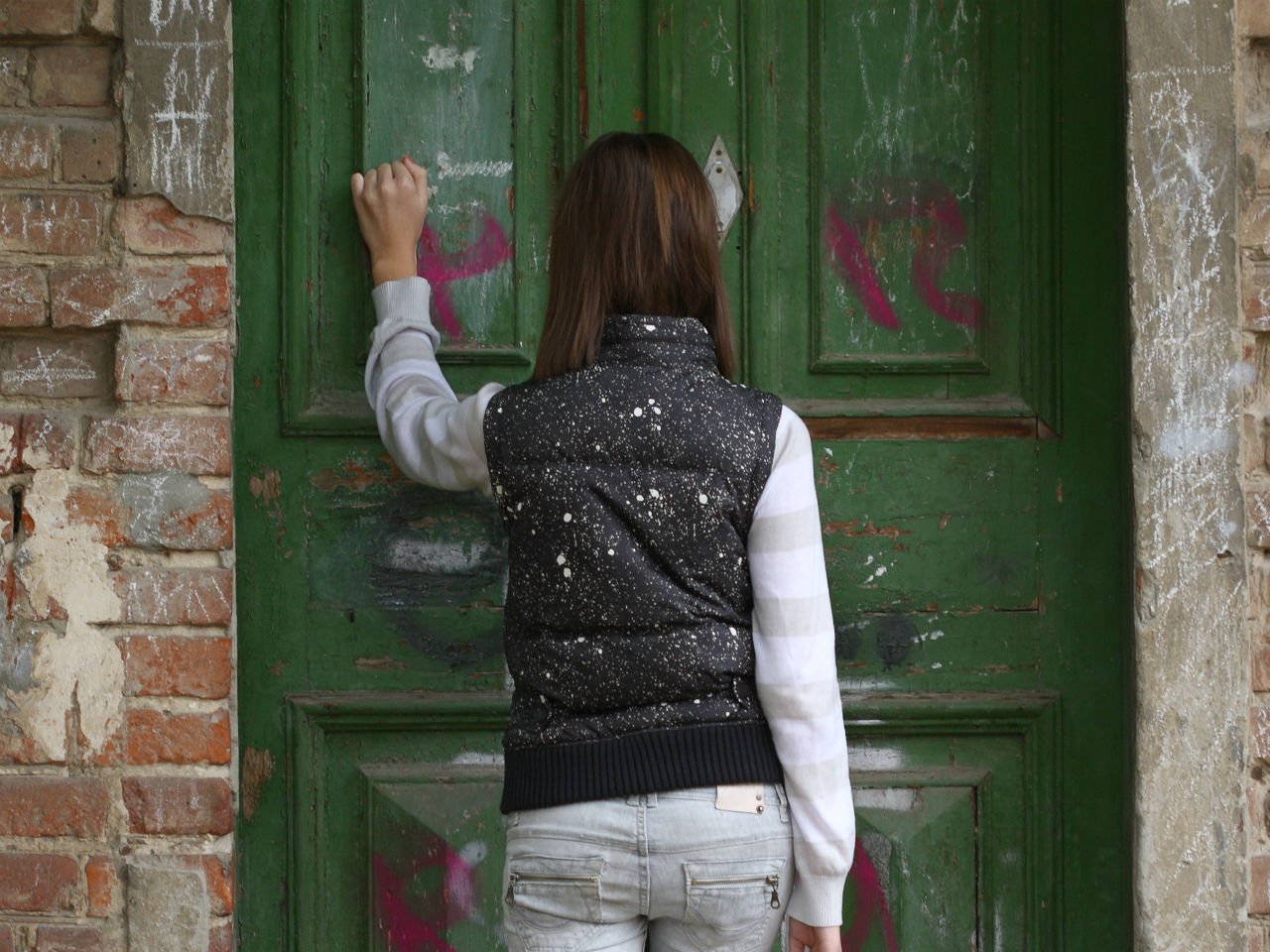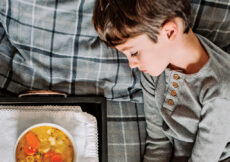Yes, their costumes might appear half-assed, and sure, they may arrive a bit on the late side, but I say give the teens their candy. Here’s why.
The candles in our jack-o-lanterns had already flickered out by the time the knock came at the door. I quickly checked the time—9:30 p.m.—before peeling myself off the couch and opening the door.
“Trick-or-treat,” said a teenager, awkwardly, holding out an open knapsack. He wore a pirate patch, jeans and a hoody. A friend hovered behind him with a fake knife sticking out of his head.
“What are you supposed to be?” I asked, reaching for what was left of our Halloween candy.
“We’re teenagers,” they said in unison. I scoffed, and dumped a couple caramels and a lollipop into each of their bags, before closing the door and turning out the porch light.
“You shouldn’t have given them anything,” my husband said, opening his umpteenth mini chocolate bar and hitting “resume play” on Netflix. “They’re too old to be trick-or-treating.”
“I don’t want them to egg our house,” I said, shrugging.
The truth was, I thought they deserved the candy.
I was dressed as a sock hop girl the last year I went trick-or-treating. I was 15, and knew it would be my final time participating in what I thought was the most glorious night of the year.
By 8:30, my friends and I had already slunk home, discouraged by the number of adults who had turned us away. Halloween, it seemed, had an unofficial and arbitrary cut-off date, meaning teenagers were no longer welcome. This mentality continues to persist in communities across the country. In fact, the town of Bathurst, N.B. enacted a law in 2017 outright banning anyone over 16 from trick-or-treating. The penalty for breaking this law? A $200 fine. Just… what?
The problem is that teenagers exist in a murky in-between world: Not quite children, not quite adults. Shaming teens (who are still kids, after all) for trying to prolong a fun and harmless childhood tradition seems pretty unreasonable. Besides, kids come in all shapes and sizes, as well as cognitive abilities. Which means the tall kid with the deep voice dressed as a Ninja could really be 12. He could also have special needs. You just don’t know.
Case in point is the story of 17-year-old Katrina Burnett. In 2017, the Utah teen, who has autism, had so many people turn her away for being too old to trick-or-treat that she ran home crying. After her story went viral, a nearby community put together a “Do-over Halloween” for her. But I can’t help but think the damage had already been done.
Teens who struggle socially because of anxiety or cognitive disorders may prefer to wait until the streets are quiet before heading out for candy. Which may mean kids as old as 16 are knocking on your door later at night, and displaying behaviour that could be misinterpreted as being discourteous. You could be peeved and tell them to scram, or you could give them the benefit of the doubt, and a bag of chips.
The truth is the 10-second interaction we have with trick-or-treaters tells us very little about the person behind the costume. Their height isn’t indicative of their age, nor is their voice or demeanour. And the very act of knocking on your door may have taken an enormous amount of courage for some teens with special needs.
As for the average 16-year-old who just wants one more year of going door-to-door, I ask you this: What’s the harm?
Childhood goes by in the blink of an eye. We can’t lament how our children grow too fast while also shaking our fingers at teens looking to hang on to the magic of Halloween for one more year. Let teenagers—regardless of their height, age or abilities—hang on to trick-or-treating just a little longer. They’ll be grumpy adults like the rest of us before you know it. Why rush them there?
This article was originally published online in October 2018.



































